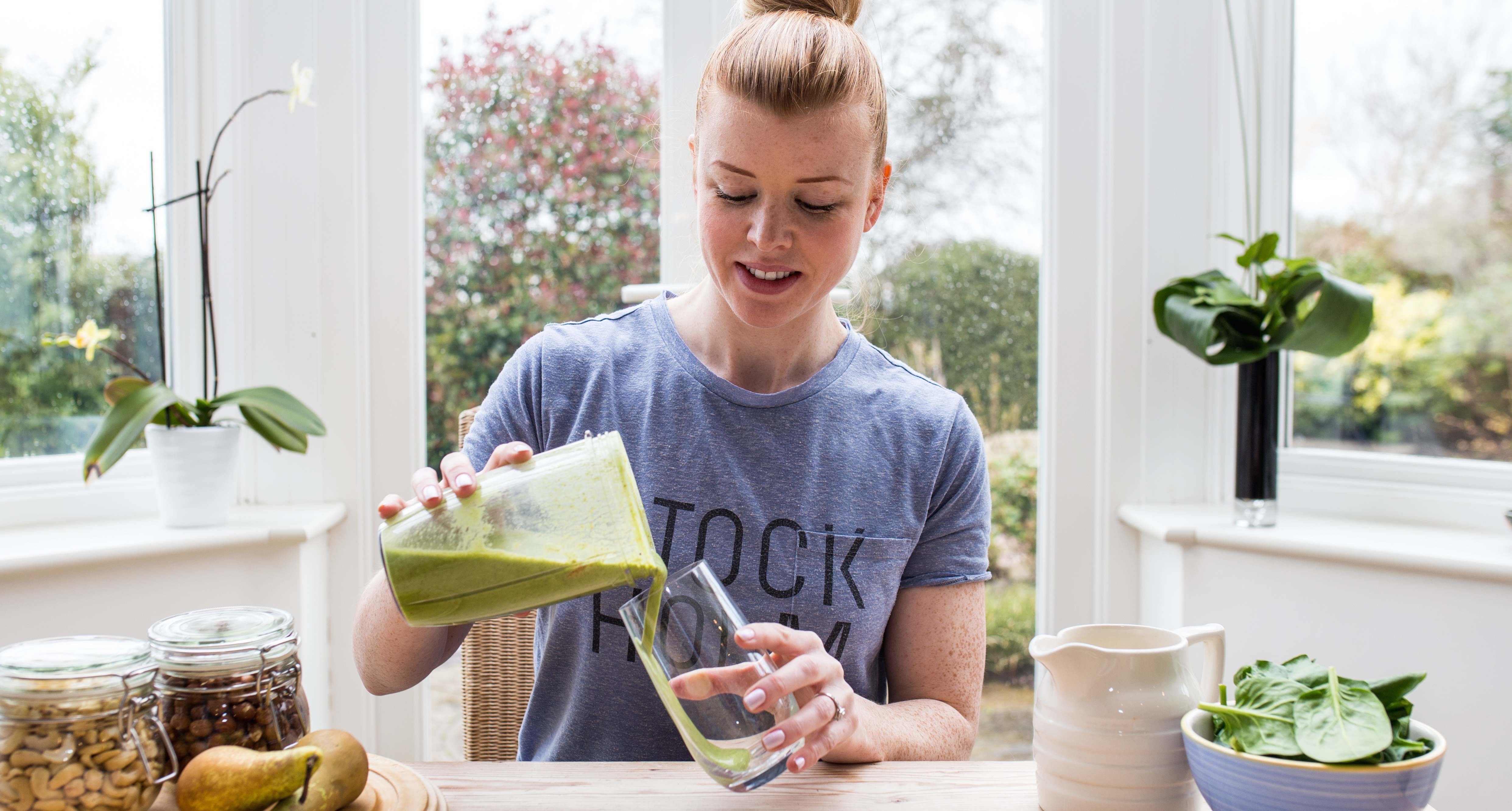One of the biggest misconceptions when it comes to healthy eating is that eating fats is a big no-no. In reality, fats are just as vital to a healthy eating plan as protein and carbohydrates. Of course, choosing the right kind of fats is key to maintaining a balanced diet. So what are healthy fats and why are they so important in a healthy diet? Read on to find out more.
What are healthy fats?
Contradictory to the mainstream media, here at FORM, we would go as far as saying that healthy fats are the most important macronutrient for health, longevity and body composition. They also play a major role in hormone and brain function.
There’s a lot of negative media coverage surrounding fats because of its ‘supposed’ damaging health effects on artery health, cholesterol and heart health. These negative health effects of some fats are certainly true, but there are many different types of fats and they should not all be viewed as the same macronutrient.
There are three basic types of fatty acid found within foods that contain fats:
- Saturated
- Polyunsaturated
- Monounsaturated
What are saturated fats?
Saturated fats remain solid at room temperature and can be found in foods such as:
- Butter
- Animal fats
- Coconut oil
Are saturated fats bad for you?
Over the past five decades, saturated fats have been given an unjust label as the root cause to many major negative health effects such as heart disease, obesity and increased cholesterol. It is only over the past decade that new evidence has started to emerge, persuading people to rethink these theories.
Saturated fats have actually been shown to raise the body’s good cholesterol. Of course, you can still get bad saturated fats, but these tend to come from low-quality meat products. Toxins are stored in the fats of animals and if the animal has lived in an unnatural, negative environment and consumed an unhealthy diet this will produce saturated fats that are unhealthy to humans.
What are polyunsaturated and monounsaturated fats?
Polyunsaturated and monounsaturated are two types of unsaturated fats that remain liquid and can be found in foods like:
- Nuts
- Vegetable oils
- Olives
Why are fats important in a healthy diet?
Healthy fats form our cell membranes, brain cells and nervous systems. They enable the body to utilise certain (fat-soluble) vitamins, and are a valuable source of energy and have a number of health benefits such as:
- Balancing hormones
- Improving brain function
- Supporting the immune system
- Improving mood
- Increasing bone strength
- Improving joint health
- Decreasing blood pressure through vasodilation.
As well as these health benefits, fatty acids found in healthy fats can improve body composition by turning off fat-storing genes and turning on fat-burning genes, all of which will:
- Make you feel fuller for longer
- improve your insulin sensitivity
- Improve your sleep
- Maintaining or even increase muscle mass through improved protein synthesis
Shouldn’t I be following a low-fat diet?
There are a lot of dieters that fall into the ‘low fat’ marketing trap, going around shopping aisles picking up anything that says ‘low-fat’, ‘reduced-fat, ‘light’ and even ‘fat-free’.
Well, it’s not a surprise! Clever marketing has us believe that these products are healthy, nutritious and will help us lose weight healthily. Unfortunately, most of these products are not quite what they seem…
Let’s take a closer look at what that labelling really means.
- Low-fat foods must have 3 grams of fat or less per serving.
- Reduced-fat foods must have at least 25% less fat than their full fat versions
- Light foods must have either 1/3 fewer calories or 50% less fat.
- Fat-free foods must have less than 0.5 grams of fat per serving.
These seemingly ‘healthy’ foods hide a very sneaky secret that us, the consumer, is blissfully unaware of. Low-fat foods are low fat for a reason!
During the manufacturing process, fat is extracted and then replaced with numerous ingredients to thicken foodstuffs up and give them back some taste. Additives such as sugar, flour, thickeners and salt are loaded into products, bumping up their calorie content in the process.
The result? Many of these low-fat brands are actually misleading you into thinking you’re heating healthily, when in fact they could be having a detrimental impact to your overall health. These products can have very poor nutritional value in comparison to their full fat counterparts – you only need to take a look at the ingredient list to see how many of them you cannot pronounce or even recognise!
Low-fat marketing has sadly given all fats a bad name. We want to emphasise that not all fat is bad, in fact, healthy fats are extremely good for you and have incredible health benefits.
What sort of fats should I be avoiding?
The fundamental structure of saturated fats largely means that, at room temperature, they are solid and have a long shelf life. Unsaturated fats, however, have a different chemical structure that leaves them exposed to going rancid. To avoid this, food manufacturers alter these foodstuffs through hydrogenation, the byproduct of which is trans fats.
Rather than worrying about saturated fats, it is the trans fatty acids that are the bad guys. It is paramount for your health and to maintain a healthy weight, that you keep well away from trans fatty acids as they play havoc with your endocrine (hormonal) system.
What foods with healthy fats should I be eating and what should I avoid?
We would recommend limiting vegetable fats, such as soy, peanut, corn, sunflower and canola. These fats are highly susceptible to oxidation during processing or cooking at a high temperature, which renders them rancid and damaging to the body.
This type of fat also tends to be high in omega-6. Most Westerners’ ratios of omega-6 to omega-3 are already dramatically out of balance which can cause increased inflammation and cardiovascular disease risks which have been shown to be more detrimental to your health than saturated fats and increased cholesterol.
Instead of consuming a diet high in omega-6, choose foods that are high in omega-3 or healthy fats, such as:
- Organic and wild meats
- Oily fish
- Avocados
- Good quality oils
- Nuts such as walnuts and macadamias.
We would also recommend supplementing with a good quality omega-3 supplement because of the health and body composition benefits they will provide.
A meal of fillet steak from a grass-fed animal together with organic new potatoes and steamed broccoli contains a substantial amount of saturated fat, but is more likely to support a healthy lifestyle rather than hinder it. Fat-free ice cream, on the other hand, despite the lack of fat is nowhere near as healthy.
When cooking at a high temperature, use coconut oil or butter instead of vegetable oils as these saturated fats are far more stable at high temperatures. You will notice that most of the meals in our personal trainer and nutritionist e-book The FORMULA, that we use butter or coconut oil when cooking at a high heat for the health benefits mentioned above.
Will eating clean help me to lose weight?
Clean eaters are already fat converts and understand the importance of healthy fats in your diet, for all of the reasons above. However, sometimes the fundamentals of weight loss are completely forgotten following a clean eating approach.
Just because you eat clean, doesn’t mean you won’t gain weight! As much as healthy fats can be good for you, it is also very important to note that we mustn’t over consume them.
This can be hard to believe, but regardless of how clean your diet is, if you are over consuming calories (no matter how healthy they are) you will ultimately gain weight.
Healthy fats are one of the main culprits for unconsciously racking up calorie content due to simple maths. Every gram of fat holds nine calories, whilst carbs and protein hold only four calories in each gram.
However, this doesn’t mean you need to be avoiding fats, it just means fats need to be consumed with awareness. It’s far too easy to consume an entire bag of cashew nuts, not realising 1/2 your days calorie allowance has gone with it.
For most people, fats need to be consumed as a small addition to your meal – such as:
- Salmon with vegetables & a small serving of wild rice (healthy fats in the salmon)
- Eggs with chicken sausages (plenty of fats in the eggs)
- Smoked salmon with cottage cheese and cracker breads
- A small handful of nuts and a piece of fruit
- Vegetables with a teaspoon of butter
Do healthy fats make you fat?
In a nutshell, no. Healthy fats do not make you fat, contrary to popular belief – however over consuming calories, whether that be from fats, carbohydrates or proteins could potentially make you gain weight.
For simple, easy to follow recipes that fit in line with your goals, grab a copy of The FORMULA – with over 70 tasty recipes to choose from you’ll be spoilt for choice. Alternatively, if you’re looking for some clean eating recipes check out the BBC Good Food Website.
Find out more information about one to one personal training, group personal training and other personal training services here at FORM Manchester.
If you have any questions on healthy fats or healthy eating, please feel free to contact the team at FORM with your questions on info@formmcr.com.
Remember to check out our Instagram page for more inspiration on losing weight and leading a healthier lifestyle.





